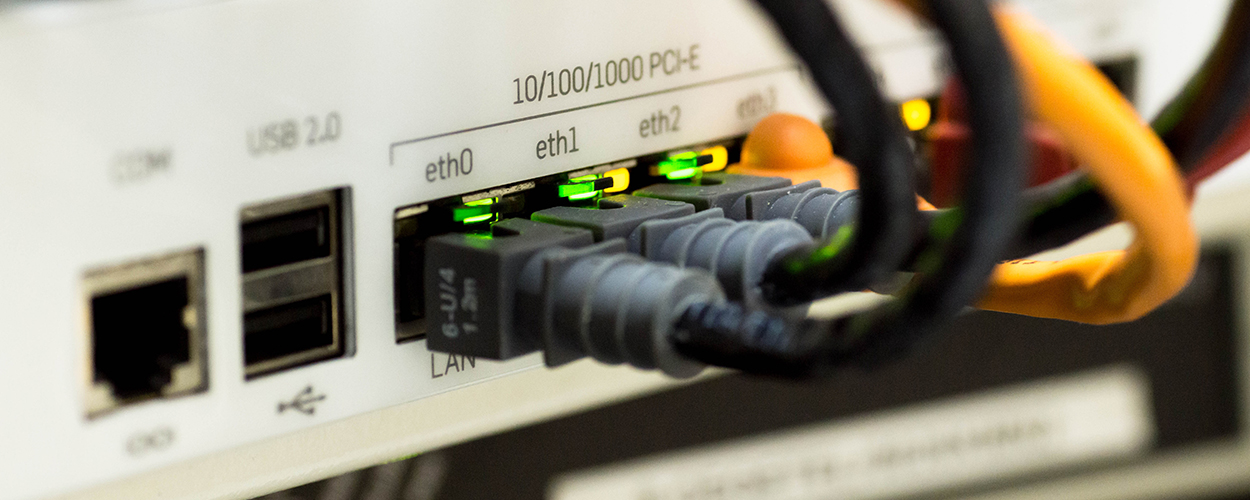This website uses cookies so that we can provide you with the best user experience possible. Cookie information is stored in your browser and performs functions such as recognising you when you return to our website and helping our team to understand which sections of the website you find most interesting and useful.
Business News Digital Labels & Publishers Legal
US copyright group calls for web-blocking to be put back on the agenda of American law-makers
By Chris Cooke | Published on Friday 24 February 2023

The CEO of CreativeFuture – a US organisation that seeks to “advocate for strong but appropriate copyright protections and empower creatives to speak out against piracy” – has called for web-blocking to be considered once again as an anti-piracy tactic for American copyright owners.
Web-blocking – whereby copyright owners get injunctions in court that order internet service providers to block access to piracy sites – has become an anti-piracy tactic of choice for music and movie companies in those countries where such injunctions are available.
But in the US, web-blocking is not an option. And when, in 2011 and 2012, proposals were made in Washington to add web-blocking to US copyright law, a huge campaign against those proposals was mounted by the tech sector which, among other things, included Wikipedia blocking access to its English language site for 24 hours.
So big was that campaign, in fact, that not only did it result in the initial web-blocking proposals being abandoned, it has also made American law-makers nervous about putting it back on the agenda ever since.
That nervousness remains, even though – as music and movie industry lobbyists have frequently pointed out – the doom and gloom predictions in 2011 and 2012 that web-blocking would result in loads of legit websites being inadvertently blocked have not come true in countries like the UK, where web-blocking is an option for copyright owners, and lots of web-blocks are now in place.
In an opinion piece for The Hill this week, CreativeFuture’s CEO Ruth Vitale sets out some recent piracy stats. “A report released by Digital Citizens Alliance in August 2020 found that pirated streaming subscription services are used by an estimated 30 million individuals in the US alone”, she writes, “generating over a billion dollars in revenue annually for the criminal enterprises operating these services”.
“According to the US Chamber Of Commerce”, she goes on, “this widespread infringement costs the US economy between $29.2 and $71 billion, and between 230,000 and 560,000 jobs, every year”.
“What is as incomprehensible?”, she then asks. “The fact that there are common sense measures in place around the world that have proven to be effective anti-piracy tools, but that aren’t available here at home. One such tool, judicially-ordered ‘site blocking’, allows courts to direct ISPs to block local access to offshore websites found to be dedicated to piracy”.
“Such site blocking has proven to be an effective remedy against piracy in the more than 40 countries that have implemented court-adjudicated site blocking”, she adds, “including western democracies like Canada and the UK”.
While web-blocking is not a panacea by any means – those who want to can generally circumvent the blockades pretty easily – copyright owners insist that putting web-blocks in place does result in more people choosing licensed and legit content services over the copyright infringing ones.
After citing various stats to that effect, Vitale’s op-ed continues: “All the evidence indicates that as site blocking scales up to include the major pirate sites, it creates systemic change – by shifting consumer behaviour away from stealing content and toward purchasing it”.
She then deals with the fears that were raised back in 2011 and 2012, ie that once web-blocking is in play, legit websites that may have inadvertently facilitated some copyright infringement could be subject to blocking.
Countering those claims, Vitale references a study by the Information Technology And Innovation Foundation which said that good web-blocking systems – like those in place in the UK and Australia – “have built-in safeguards to ensure that only rightsholders with high-quality cases – those involving websites that are dedicated to copyright infringement – are granted an injunction”.
“Rather than harming internet freedoms”, Vitale argues, “these well-vetted, court-adjudicated site blocking measures targeting large-scale commercial piracy operations (not sites that accidentally, or incidentally, host pirated material) are associated with countries with the strongest records on internet freedom”.
With that in mind, she concludes: “It is time for these outdated arguments against common sense anti-piracy tools to stop. Protecting the creative industries has always been a bipartisan issue, and I hope that members of Congress on both sides of the aisle will soon be ready to discuss site blocking legislation”.
Although the anti-web-blocking campaign in the US in 2012 was particularly high profile, ISPs have often hit out at proposed new web-blocking rules when first proposed in other countries too.
But, once those rules are in place, the ISPs usually just get about implementing the web-blocks whenever a court order comes in without much fuss, and in some cases subsequently speak out in support of web-blocking as one of the easier anti-piracy systems to implement.
There is some support in Washington for adopting anti-piracy measures that have been tested in other countries – and we have seen some commitments to web-blocking by tech companies when legal disputes have been settled in American courts.
But it will be interesting to see how full-on any anti-web-blocking campaign would be this time round if Vitale’s allies in Congress put the anti-piracy proposal formally back on the legislative agenda.





